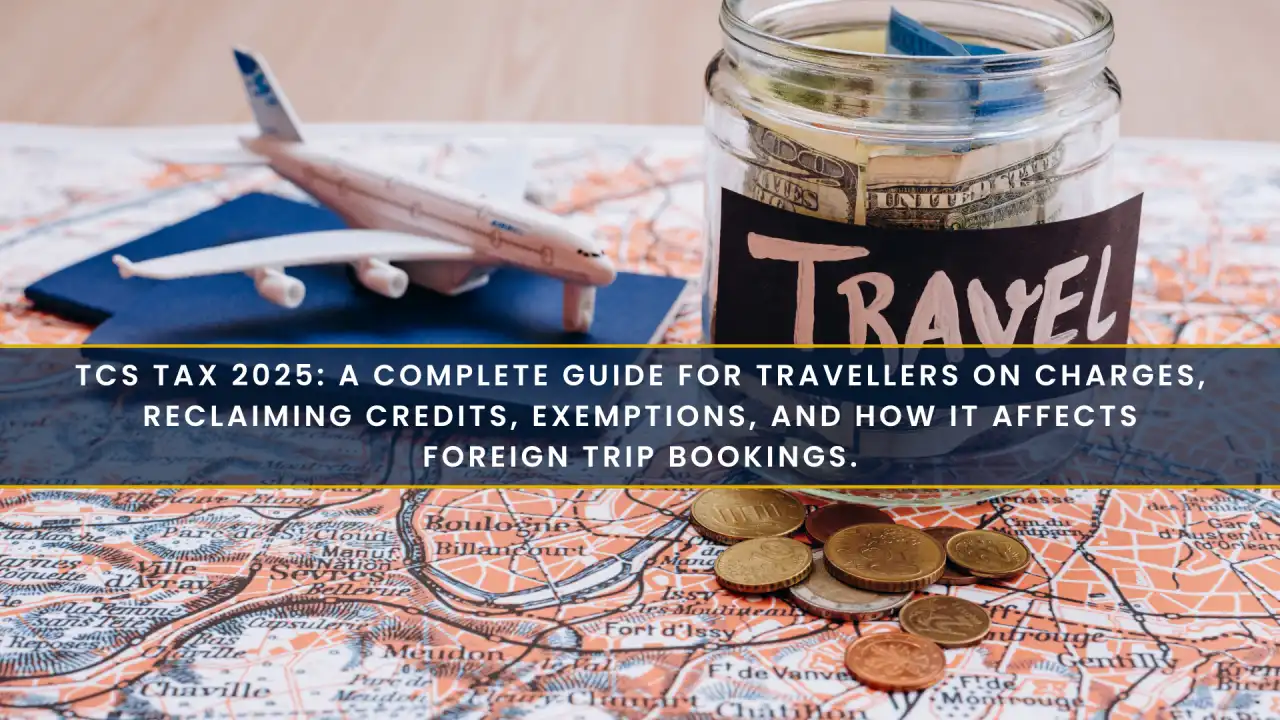
TCS Tax: What Travellers Really Need to Know in 2025
Introduction
So, you’re planning a trip abroad. Excited, right? Maybe you’ve even picked your dream destination, packed your bags in your head, and then bam. You see this thing called TCS Tax (Tax collected at source) on your invoice. And suddenly, your brain’s doing a double-take. Wait, what? Extra fee? Nope. Relax. It’s not the travel company trying to sneak in extra charges. It’s a government thing. A tax collected at the source. And yes, you can claim it back. Think of it as a tiny checkpoint for your travel money, one of those “we’re watching you” things. Weird? Sure. Annoying? Maybe. Necessary? Definitely.
What is TCS in Travel?
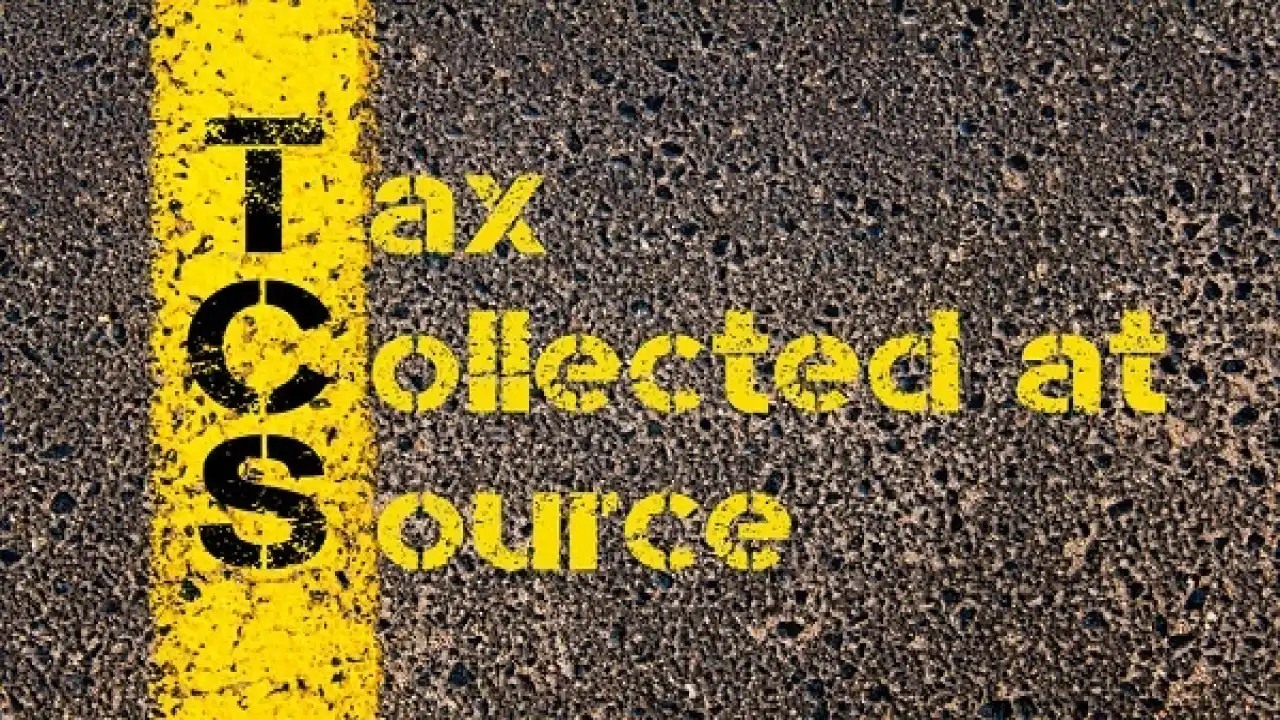
Here’s the simple version: whenever you book a foreign trip through a travel company, a small chunk of your package cost is collected as TCS Tax. The company doesn’t keep it, as it goes straight to the government. Later, when you do your taxes, you can claim it back. Easy? Almost. Don’t let the official-sounding term scare you; it’s basically a paper trail for your own good.
Why does it matter to travellers?
Even if it isn’t extra money in reality, seeing it on an invoice can freak you out. TCS is like a tiny insurance policy for your money. It keeps you on the right side of the law and prevents headaches when you’re filing returns later. Trust me, nobody likes last-minute surprises from the tax office.
How does it affect foreign travel packages?
So when you book, TCS will appear on your invoice. Yes, your upfront payment looks a little higher. But relax, you can reclaim it as a tax credit. It’s not gone forever. Just a little precaution and you’re good.
Who Needs to Pay TCS?

- Travellers: Anyone booking foreign trips pays TCS if their package crosses the threshold.
- Corporate bookings: Companies paying for employee trips are included, too.
- Exemptions: Domestic trips, education, or medical-related foreign travel sometimes escape it.
Basically, if it’s foreign and expensive, the government wants to know about it.
TCS Rates in 2025
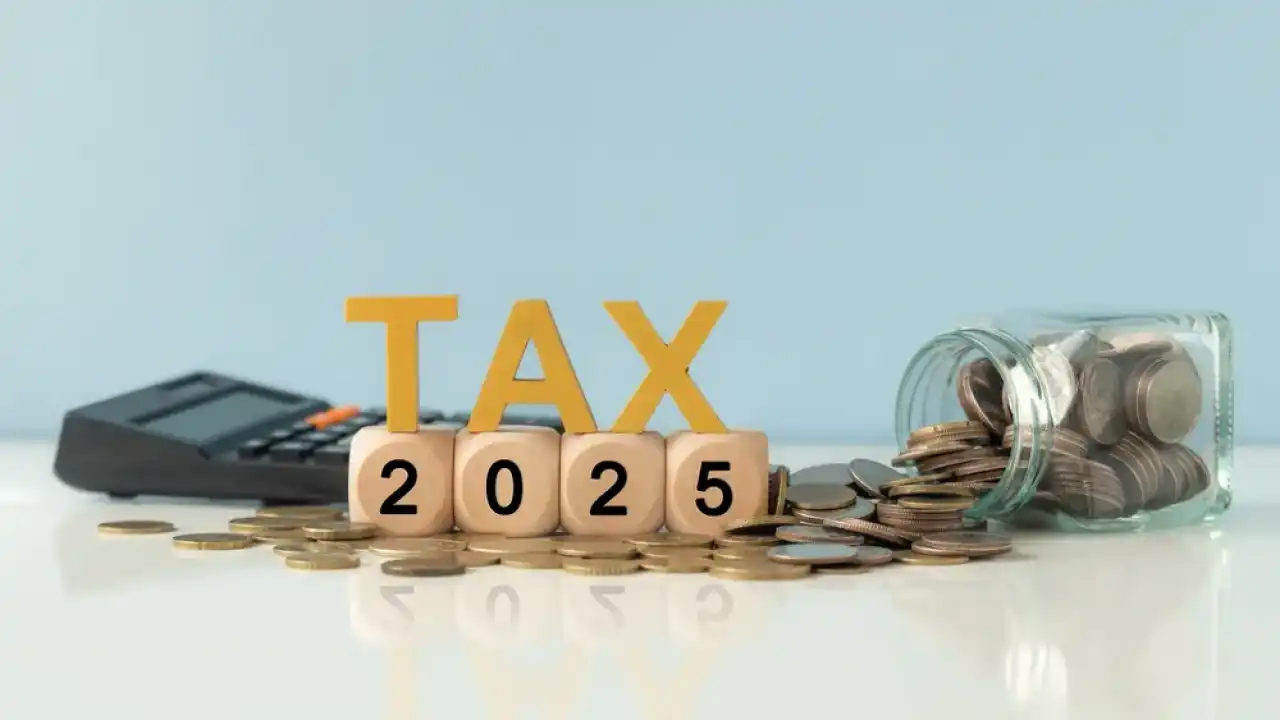
Knowing the TCS rates is kind of important before you book any trip.
- Up to ₹10 lakh → 5% TCS
- Above ₹10 lakh → 20% TCS on the amount exceeding ₹10 lakh
Here’s a real-life example: if your package costs ₹12 lakh. You pay 5% on the first ₹10 lakh, that’s ₹50,000. The remaining ₹2 lakh? 20% ₹40,000. Total TCS? ₹90,000. Big number, yes. Scary? Maybe. Lost forever? Nope. Reclaimable and Remember that.
How TCS is Collected
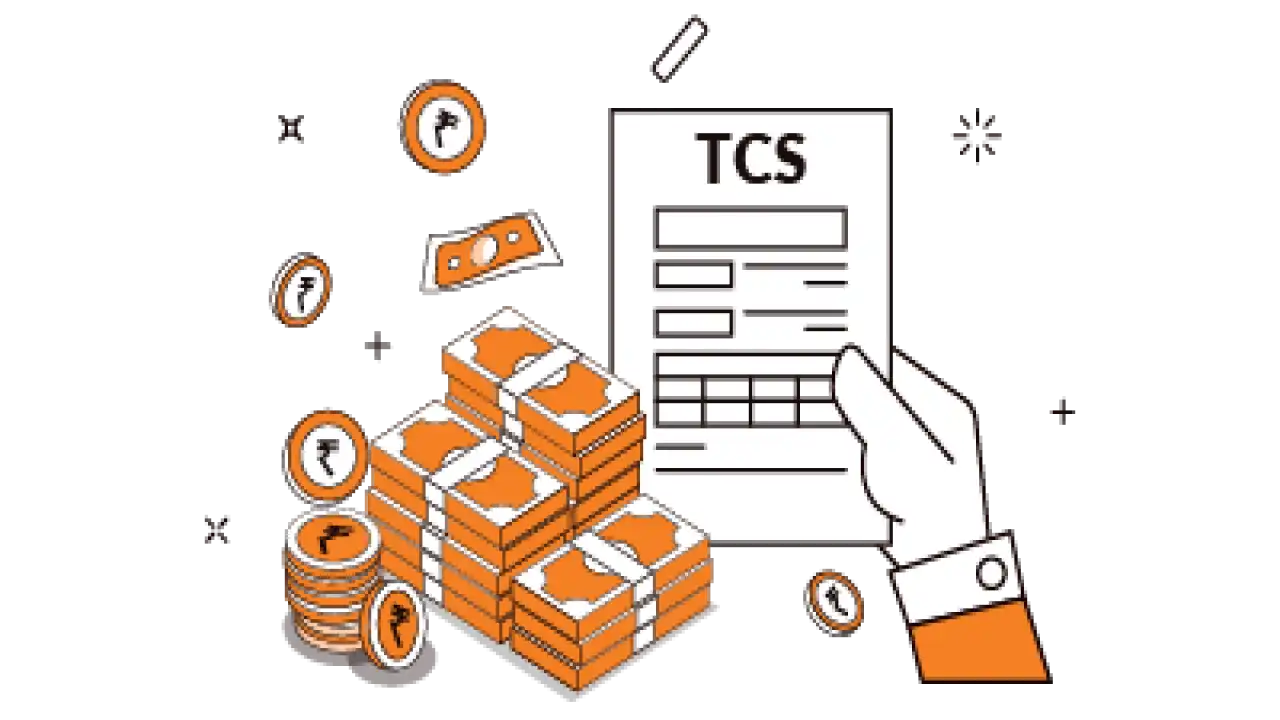
It’s simple but still worth understanding.
- At booking: The travel company adds TCS to your invoice.
- Payment methods: Pay via card, bank transfer, online, whatever’s easiest.
- Government deposit: Travel companies then transfer it to the government and give you a TCS certificate, in which you can claim your credit later.
Tip: Keep that certificate safe. Seriously, losing it will be a headache for you, and you don’t want it.
How TCS is Different from GST
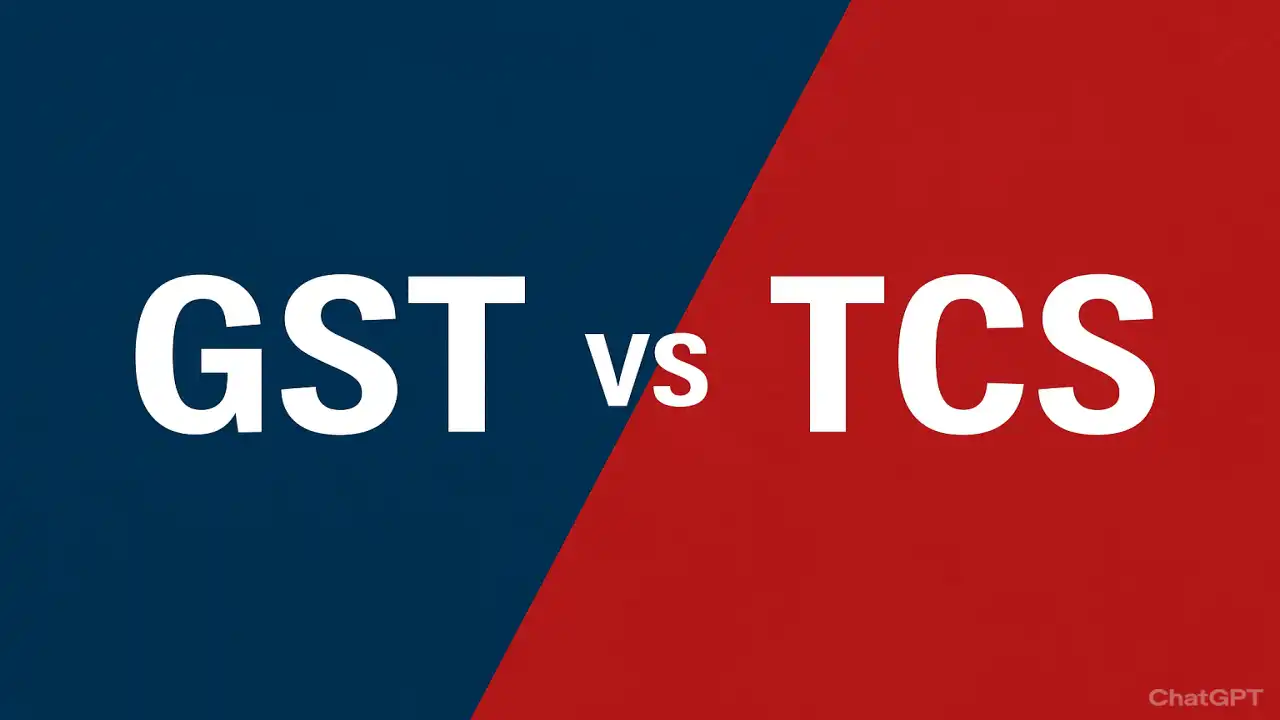
Okay, let’s clear this up because a lot of travelers get tripped up here. GST and TCS sound kinda similar, right? But trust me, they’re totally different from each other. GST is what the travel company charges you on top of their service. Think of it as a fee for what they’re actually doing, booking your flights, hotels, tours, and all those other things. That money stays with them (well, some goes to the government as tax).
TCS, on the other hand, is not for the company at all. It’s a small percentage of your foreign travel package that the company collects on behalf of the government. You pay it when you book, but here’s the key: you can claim it back later when filing your income tax return. So, unlike GST, this isn’t “lost money.” It’s basically the government saying, “We want to know about your overseas spending.” Confusing? Yep. Easy to mess up? Totally. Just remember this rule of thumb: GST is for the service you get; TCS is for the government fee money, which comes back to you later. It's Simple once you think about it, messy on the invoice though.
TCS Certificate
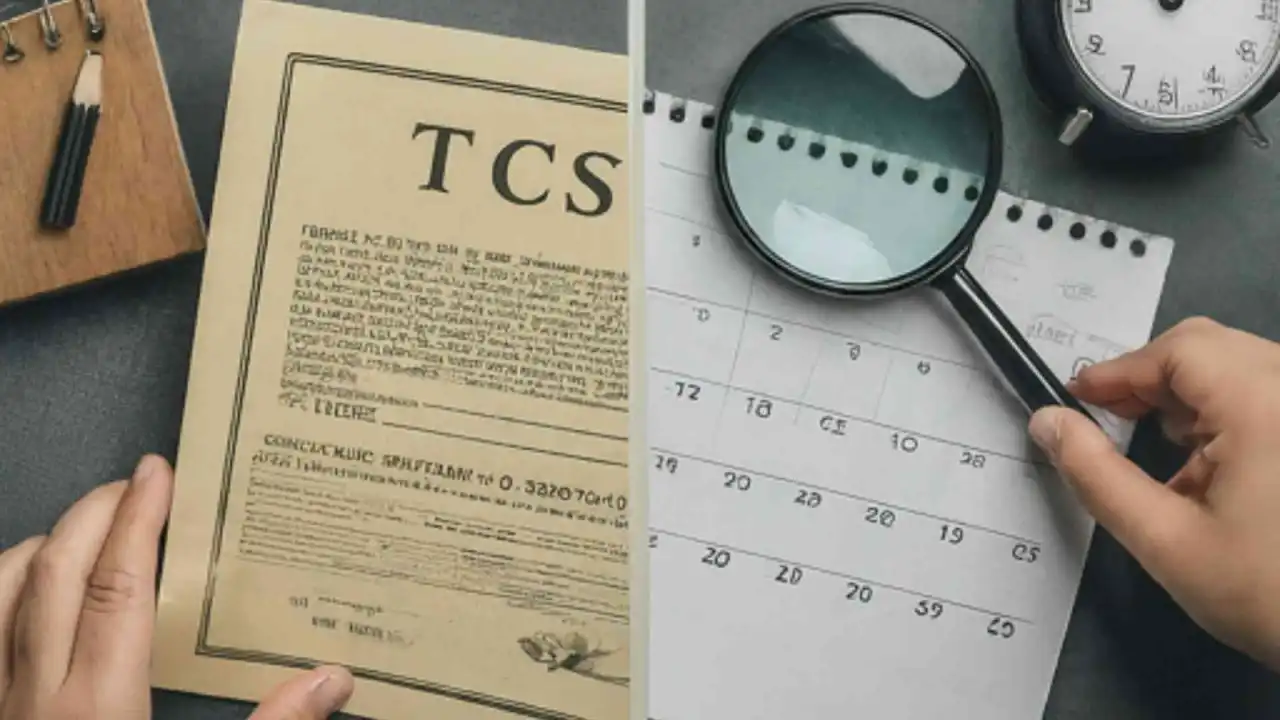
This little piece of paper is more important than it sounds.
- Shows exactly how much TCS was collected.
- Required to claim it back when filing your taxes.
- If the company forgets to give it, ask for it. They’re legally obligated.
Without it, your tax claim is just a sad story waiting to happen.
TCS for Multi-Country Trips
Now, let’s say you’re planning a tour that hits three countries in one go. Sounds fun. But how does TCS work here? Does each country get its own little tax slapped on top? Nope. Not how it works.TCS doesn’t care how many countries you’re planning to visit. It depends on your total package cost. That’s it. One lump sum, one calculation. Makes life easier, kind of.
Example: You’ve got a 3-country trip costing ₹12 lakh. Same math as before: 5% on the first ₹10 lakh (₹50,000) and 20% on the remaining ₹2 lakh (₹40,000). Total TCS = ₹90,000. Done. No extra calculations per country. So, in a messy, multi-destination trip, at least you don’t have to worry about juggling different TCS amounts for each stop. The number is big, yes, but predictable and reclaimable when you file your taxes. Less math stress, more travel hype.
Why Does TCS Feel Like Extra Money for Travellers?
When travelers spot TCS on their invoice, it often feels like the company has quietly added an extra cost. The amount can look big enough to raise eyebrows, but the truth is, it’s not a hidden fee at all. By law, travel companies simply collect this tax and pass it directly to the government. It doesn’t stay in the company’s pocket, and it’s not a service charge. Think of it as a short-term deposit you make with the government whenever you book a foreign trip.
The good news is, this money isn’t lost. When you file your income tax return, the TCS you’ve paid shows up as a credit you can adjust against your tax bill or even get a refund if you’ve already paid enough. Also, remember that TCS only applies to foreign travel packages. Bookings within India? No TCS at all. So while it feels like extra money upfront, in reality, it’s just a temporary step in the travel-tax process.
Tips for Travelers
- Plan payments so you don’t hit TCS surprises.
- Keep all invoices and TCS certificates handy for filing.
- Check invoices carefully. Mistakes happen, even in travel.
- You can claim it as a tax credit and reduce your overall liability.
- Proper documentation avoids annoying tax office issues later.
- Makes your travel costs transparent, so you know where your money is going.
Conclusion
TCS isn’t some sneaky extra fee trying to creep into your travel budget; it’s just the government doing its job, keeping track of foreign remittances and making sure everyone stays compliant. Knowing about TCS Tax and understanding the TCS rates can save you from surprises on your invoice. Being aware of TCS in travel ahead of time helps you plan better, so your trip feels smoother and less stressful right from the booking stage.
Keeping your TCS certificates safe, double-checking invoices, and asking questions when something seems unclear gives you peace of mind and keeps tax-time headaches at bay. At the end of the day, TCS is refundable and legal; it’s just a small step in managing your travel expenses smartly. At Travel Junky, we make sure our travelers understand how TCS works.

